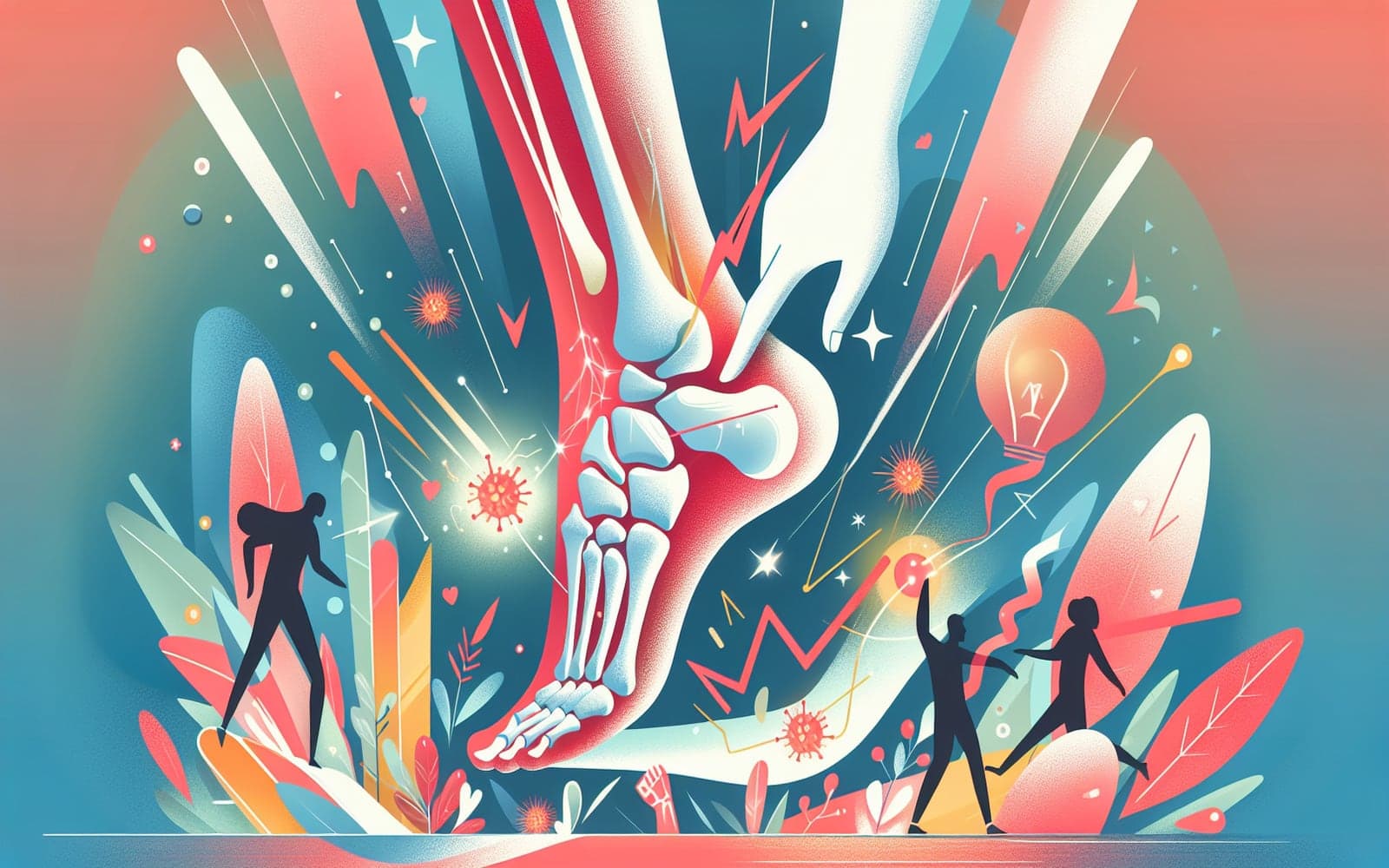Breaking Down the Risks: Understanding Sesamoid Fracture Risk Factors
Published: Sep 15, 2023
Knowing the risk factors for sesamoid fractures can help you take preventive measures. Let's break down who is most at risk.
Contents
Common Risk Factors
Athletes, especially those involved in high-impact sports, are at higher risk of sesamoid fractures. Activities that involve rapid acceleration and deceleration put stress on the sesamoid bones. Women, particularly young females, also appear more susceptible to these fractures.
Lifestyle and Activity Levels
Lifestyle choices play a role in sesamoid fracture risk. Those who suddenly increase their activity levels, like runners ramping up their mileage, are at risk. Wearing improper footwear that doesn't support the foot can also contribute to these injuries.

Understanding Cumulative Stress
Cumulative stress from repetitive activities can lead to stress fractures in the sesamoids. Over time, micro-injuries accumulate and weaken the bone. Taking regular breaks and cross-training can help mitigate this risk.
Frequently Asked Questions
Athletes and young females are at higher risk.
Sudden increases in activity can increase the risk of fractures.
Improper footwear can contribute to sesamoid fractures.
Repetitive activities cause micro-injuries that accumulate over time.
Key Takeaways
Understanding risk factors empowers you to take proactive steps in preventing sesamoid fractures.
Concerned about your risk? Chat with Doctronic for personalized insights.Related Articles
References
Sugimoto D, Gearhart MG, Kobelski GP, et al. Hallux Sesamoid Injury Characteristics in Young Athletes Presented to the Sports Medicine Clinic. Clin J Sport Med 2022; 32:e276.
Stovitz SD, Arendt EA. NSAIDs should not be used in treatment of stress fractures. Am Fam Physician 2004; 70:1452, 1454.
Always discuss health information with your healthcare provider.

